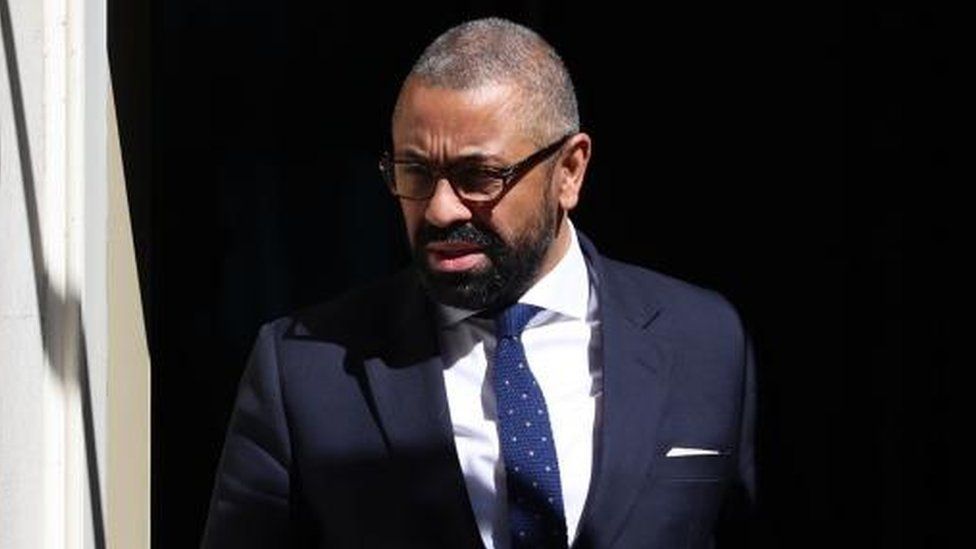A British diplomat has been given a week to leave Russia in an escalation of a diplomatic spat over spying.
The Russian foreign ministry said in a statement the removal of Capt Adrian Coghill was in response to “unfriendly anti-Russian actions” from Britain.
On 8 May, the Russian defence attache was expelled from London for alleged espionage as an “undeclared military intelligence officer”.
Russia says its response “does not end with this measure”.
It added the “initiators of the escalation will be informed about further retaliatory steps”.
It was inevitable following the UK’s earlier announcement that Russia would declare Capt Coghill, a Royal Naval officer and Britain’s defence attache based at the embassy in Moscow, persona non grata.
Russian statecraft follows closely the principle of proportionality, which means for every tit, there must be a tat.
So British diplomats in Moscow will expect further constraints.
All this would have been taken into account when the government decided last week to crackdown on Russian espionage in the UK.
Ministers would have decided that the loss of Britain’s defence expert in the embassy in Moscow was worth the gain of disrupting Russian activities in the UK.
Writing on X, previously known as Twitter, Defence Secretary Grant Shapps called the expulsion by Russia a “desperate move”.
He said Russia’s only issue with Capt Coghill was that he “personified the UK’s unwavering support for Ukraine in the face of his illegal and barbaric invasion”.
The removal of Col Maxim Elovik was among a number of other measures announced by the Home Office, Foreign Office and Ministry of Defence – as part of plans to “tighten defences against alleged malign activity by Russia” across Europe.
In April, five people were charged over conspiring to commit espionage activities in the UK on behalf of Russia under the National Security Act, the first prosecutions of this kind under the new laws.
Another of the measures included the removal of diplomatic premises status from several Russian properties in the UK – including in Sussex and Highgate, which officials believe had been used for “intelligence purposes”.
Russian diplomatic visas were also affected, with restrictions including a cap on the length of time holders can spend in the UK.
Last week, Home Secretary James Cleverly said Moscow would make accusations of “Russophobia” while spreading “conspiracy theories and hysteria”.
Col Maxim Elovik appears to have been in the UK since at least 2014.
Prior to his posting in London, Col Elovik served as an assistant military attache at Russia’s embassy in Washington DC.
![]()


